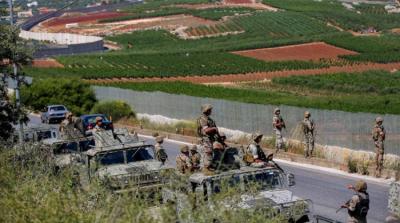With the importance of the ceasefire in Gaza and reaching a truce to create an opening for changing the state of war that has engulfed the entire Middle East, which threatens to ignite a second front that remains open for continuous conflict, there exists a framework of rules of engagement recognized by the warring parties (the Lebanon front, or south, with Hezbollah) and (Israel), which has been waging its senseless, or open, war on Gaza since October 7. Additionally, there is a partially open third front in the Red Sea involving the Houthis in Yemen, all parties, and ships passing through this strategic trade corridor, which has affected overall trade movement between the East and West, thus increasing maritime travel costs. This front is also linked to what is called the "Resistance Axis," and is waiting for the results of the negotiations taking place regarding the ceasefire between "Hamas" and Israel, and the halt of the ongoing war there.
In this context, it suffices to mention that Hassan Nasrallah, the leader of the Lebanese Hezbollah, has stated that stopping the Gaza war means stopping the southern Lebanese front, and that "Hamas" is negotiating on behalf of the "Resistance" as a whole. This represents another opening for calm in the Middle East that should be exploited and utilized. If we think deeply about this issue, we will find that continuing the war in Gaza means its ignition in Syria, Lebanon, Jordan, through the West Bank, and in Yemen as well, through the Houthis in the Red Sea.
I believe that the state of war in the Middle East will not calm down, because it seems that some of the parties who ignited it will not find a place for themselves after the calm. For example, Benjamin Netanyahu, the Israeli Prime Minister, and his ruling extremist party feel that they are not ready for peace and stability, as it will lead to their downfall and legal consequences. Those wishing for stability in the Middle East are trying to find an opening for peace. Only Netanyahu remains, and he is heading to America at the end of this month to address Congress. Will he find a safe haven for himself and his political future in Washington, and strike a deal towards a ceasefire and an end to the wars, even temporarily, allowing the region to catch its breath? Or has Netanyahu's instinct and appetite for war become stronger than the ability to control it amidst an international community and weak world leaderships in the face of the dominance of war powers?




